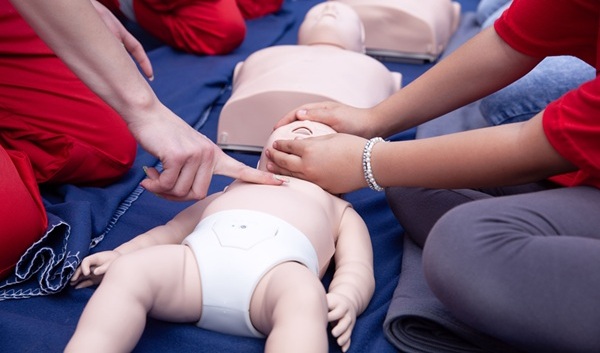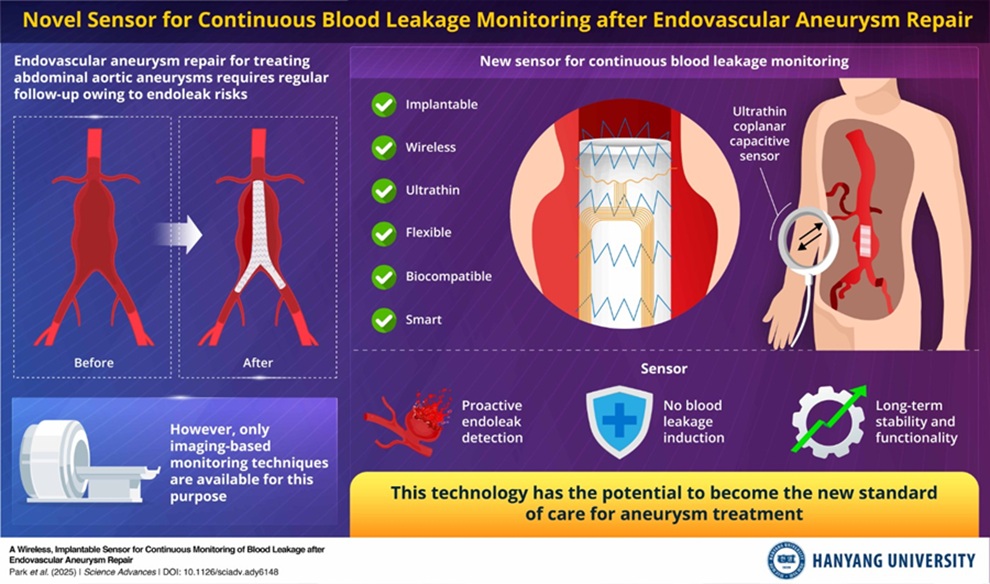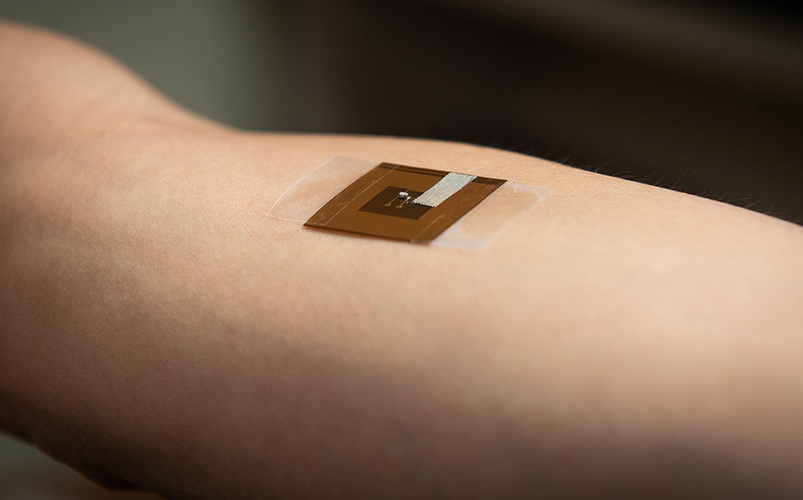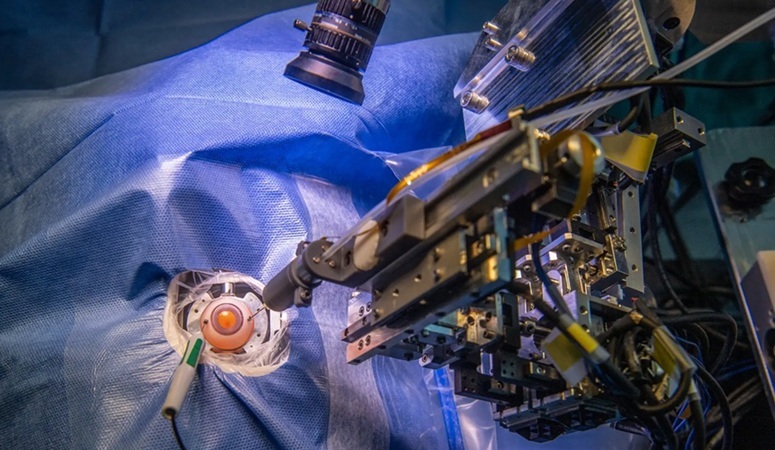AstraZeneca Confirms Participant in COVID-19 Vaccine Trial Developed Rare But Serious Spinal Inflammatory Disorder
|
By HospiMedica International staff writers Posted on 11 Sep 2020 |

Image: AstraZeneca Confirms Participant in COVID-19 Vaccine Trial Developed Rare but Serious Spinal Inflammatory Disorder (Photo courtesy of AstraZenica)
AstraZeneca (Cambridgeshire, England) has confirmed that a participant in the Phase 3 trial of the company’s experimental COVID-19 vaccine candidate developed a serious spinal inflammatory disorder, forcing it to halt the study.
AstraZeneca is conducting trials of its adenovirus vector-based COVID-19 vaccine candidate, AZD1222, developed by the University of Oxford (Oxford, UK). It uses a replication-deficient chimpanzee viral vector based on a weakened version of a common cold virus (adenovirus) that causes infections in chimpanzees and contains the genetic material of the SARS-CoV-2 virus spike protein. After vaccination, the surface spike protein is produced, priming the immune system to attack the SARS-CoV-2 virus if it later infects the body.
Speaking to investors from J.P. Morgan during a private call, AstraZeneca CEO Pascal Soriot confirmed that a woman injected with the company’s COVID-19 vaccine during the Phase 3 trial developed transverse myelitis. The trial of its COVID-19 vaccine was paused at dozens of sites across the due to the serious adverse reaction in the participant. Soriot also informed the investors that this was the second time that the Phase 2/3 study had been halted after the first pause in July, when another patient had experienced neurological issues.
In a company statement, AstraZeneca has said that all trials of its COVID-19 vaccine would remain on hold until an independent committee completed its review of the safety data of the participant who developed a spinal inflammatory disorder occurred in the UK Phase 3 trial. Calling the action as routine, AstraZeneca assured that it was working to expedite the review of the event to minimize any potential impact on the trial timeline and remained committed to the safety of its participants and the highest standards of conduct in its trials.
“At AstraZeneca we put science, safety and the interests of society at the heart of our work. This temporary pause is living proof that we follow those principles while a single event at one of our trial sites is assessed by a committee of independent experts,” said Soriot. “We will be guided by this committee as to when the trials could restart, so that we can continue our work at the earliest opportunity to provide this vaccine broadly, equitably and at no profit during this pandemic.”
Meanwhile, the World Health Organization's (WHO) chief scientist said that the pause of AstraZeneca’s COVID-19 vaccine trials was a "wake-up call" but should not discourage researchers.
"This is a wake-up call to recognize that there are ups and downs in clinical development and that we have to be prepared," Soumya Swaminathan told a virtual briefing from Geneva. "We do not have to be discouraged. These things happen."
Related Links:
AstraZeneca
University of Oxford
AstraZeneca is conducting trials of its adenovirus vector-based COVID-19 vaccine candidate, AZD1222, developed by the University of Oxford (Oxford, UK). It uses a replication-deficient chimpanzee viral vector based on a weakened version of a common cold virus (adenovirus) that causes infections in chimpanzees and contains the genetic material of the SARS-CoV-2 virus spike protein. After vaccination, the surface spike protein is produced, priming the immune system to attack the SARS-CoV-2 virus if it later infects the body.
Speaking to investors from J.P. Morgan during a private call, AstraZeneca CEO Pascal Soriot confirmed that a woman injected with the company’s COVID-19 vaccine during the Phase 3 trial developed transverse myelitis. The trial of its COVID-19 vaccine was paused at dozens of sites across the due to the serious adverse reaction in the participant. Soriot also informed the investors that this was the second time that the Phase 2/3 study had been halted after the first pause in July, when another patient had experienced neurological issues.
In a company statement, AstraZeneca has said that all trials of its COVID-19 vaccine would remain on hold until an independent committee completed its review of the safety data of the participant who developed a spinal inflammatory disorder occurred in the UK Phase 3 trial. Calling the action as routine, AstraZeneca assured that it was working to expedite the review of the event to minimize any potential impact on the trial timeline and remained committed to the safety of its participants and the highest standards of conduct in its trials.
“At AstraZeneca we put science, safety and the interests of society at the heart of our work. This temporary pause is living proof that we follow those principles while a single event at one of our trial sites is assessed by a committee of independent experts,” said Soriot. “We will be guided by this committee as to when the trials could restart, so that we can continue our work at the earliest opportunity to provide this vaccine broadly, equitably and at no profit during this pandemic.”
Meanwhile, the World Health Organization's (WHO) chief scientist said that the pause of AstraZeneca’s COVID-19 vaccine trials was a "wake-up call" but should not discourage researchers.
"This is a wake-up call to recognize that there are ups and downs in clinical development and that we have to be prepared," Soumya Swaminathan told a virtual briefing from Geneva. "We do not have to be discouraged. These things happen."
Related Links:
AstraZeneca
University of Oxford
Latest COVID-19 News
- Low-Cost System Detects SARS-CoV-2 Virus in Hospital Air Using High-Tech Bubbles
- World's First Inhalable COVID-19 Vaccine Approved in China
- COVID-19 Vaccine Patch Fights SARS-CoV-2 Variants Better than Needles
- Blood Viscosity Testing Can Predict Risk of Death in Hospitalized COVID-19 Patients
- ‘Covid Computer’ Uses AI to Detect COVID-19 from Chest CT Scans
- MRI Lung-Imaging Technique Shows Cause of Long-COVID Symptoms
- Chest CT Scans of COVID-19 Patients Could Help Distinguish Between SARS-CoV-2 Variants
- Specialized MRI Detects Lung Abnormalities in Non-Hospitalized Long COVID Patients
- AI Algorithm Identifies Hospitalized Patients at Highest Risk of Dying From COVID-19
- Sweat Sensor Detects Key Biomarkers That Provide Early Warning of COVID-19 and Flu
- Study Assesses Impact of COVID-19 on Ventilation/Perfusion Scintigraphy
- CT Imaging Study Finds Vaccination Reduces Risk of COVID-19 Associated Pulmonary Embolism
- Third Day in Hospital a ‘Tipping Point’ in Severity of COVID-19 Pneumonia
- Longer Interval Between COVID-19 Vaccines Generates Up to Nine Times as Many Antibodies
- AI Model for Monitoring COVID-19 Predicts Mortality Within First 30 Days of Admission
- AI Predicts COVID Prognosis at Near-Expert Level Based Off CT Scans
Channels
Critical Care
view channel
CPR Guidelines Updated for Pediatric and Neonatal Emergency Care and Resuscitation
Cardiac arrest in infants and children remains a leading cause of pediatric emergencies, with more than 7,000 out-of-hospital and 20,000 in-hospital cardiac arrests occurring annually in the United States.... Read more
Ingestible Capsule Monitors Intestinal Inflammation
Acute mesenteric ischemia—a life-threatening condition caused by blocked blood flow to the intestines—remains difficult to diagnose early because its symptoms often mimic common digestive problems.... Read more
Wireless Implantable Sensor Enables Continuous Endoleak Monitoring
Endovascular aneurysm repair (EVAR) is a life-saving, minimally invasive treatment for abdominal aortic aneurysms—balloon-like bulges in the aorta that can rupture with fatal consequences.... Read more
Wearable Patch for Early Skin Cancer Detection to Reduce Unnecessary Biopsies
Skin cancer remains one of the most dangerous and common cancers worldwide, with early detection crucial for improving survival rates. Traditional diagnostic methods—visual inspections, imaging, and biopsies—can... Read moreSurgical Techniques
view channel
Robotic Assistant Delivers Ultra-Precision Injections with Rapid Setup Times
Age-related macular degeneration (AMD) is a leading cause of blindness worldwide, affecting nearly 200 million people, a figure expected to rise to 280 million by 2040. Current treatment involves doctors... Read more
Minimally Invasive Endoscopic Surgery Improves Severe Stroke Outcomes
Intracerebral hemorrhage, a type of stroke caused by bleeding deep within the brain, remains one of the most challenging neurological emergencies to treat. Accounting for about 15% of all strokes, it carries... Read morePatient Care
view channel
Revolutionary Automatic IV-Line Flushing Device to Enhance Infusion Care
More than 80% of in-hospital patients receive intravenous (IV) therapy. Every dose of IV medicine delivered in a small volume (<250 mL) infusion bag should be followed by subsequent flushing to ensure... Read more
VR Training Tool Combats Contamination of Portable Medical Equipment
Healthcare-associated infections (HAIs) impact one in every 31 patients, cause nearly 100,000 deaths each year, and cost USD 28.4 billion in direct medical expenses. Notably, up to 75% of these infections... Read more
Portable Biosensor Platform to Reduce Hospital-Acquired Infections
Approximately 4 million patients in the European Union acquire healthcare-associated infections (HAIs) or nosocomial infections each year, with around 37,000 deaths directly resulting from these infections,... Read moreFirst-Of-Its-Kind Portable Germicidal Light Technology Disinfects High-Touch Clinical Surfaces in Seconds
Reducing healthcare-acquired infections (HAIs) remains a pressing issue within global healthcare systems. In the United States alone, 1.7 million patients contract HAIs annually, leading to approximately... Read moreHealth IT
view channel
Printable Molecule-Selective Nanoparticles Enable Mass Production of Wearable Biosensors
The future of medicine is likely to focus on the personalization of healthcare—understanding exactly what an individual requires and delivering the appropriate combination of nutrients, metabolites, and... Read moreBusiness
view channel
Philips and Masimo Partner to Advance Patient Monitoring Measurement Technologies
Royal Philips (Amsterdam, Netherlands) and Masimo (Irvine, California, USA) have renewed their multi-year strategic collaboration, combining Philips’ expertise in patient monitoring with Masimo’s noninvasive... Read more
B. Braun Acquires Digital Microsurgery Company True Digital Surgery
The high-end microsurgery market in neurosurgery, spine, and ENT is undergoing a significant transformation. Traditional analog microscopes are giving way to digital exoscopes, which provide improved visualization,... Read more
CMEF 2025 to Promote Holistic and High-Quality Development of Medical and Health Industry
The 92nd China International Medical Equipment Fair (CMEF 2025) Autumn Exhibition is scheduled to be held from September 26 to 29 at the China Import and Export Fair Complex (Canton Fair Complex) in Guangzhou.... Read more















